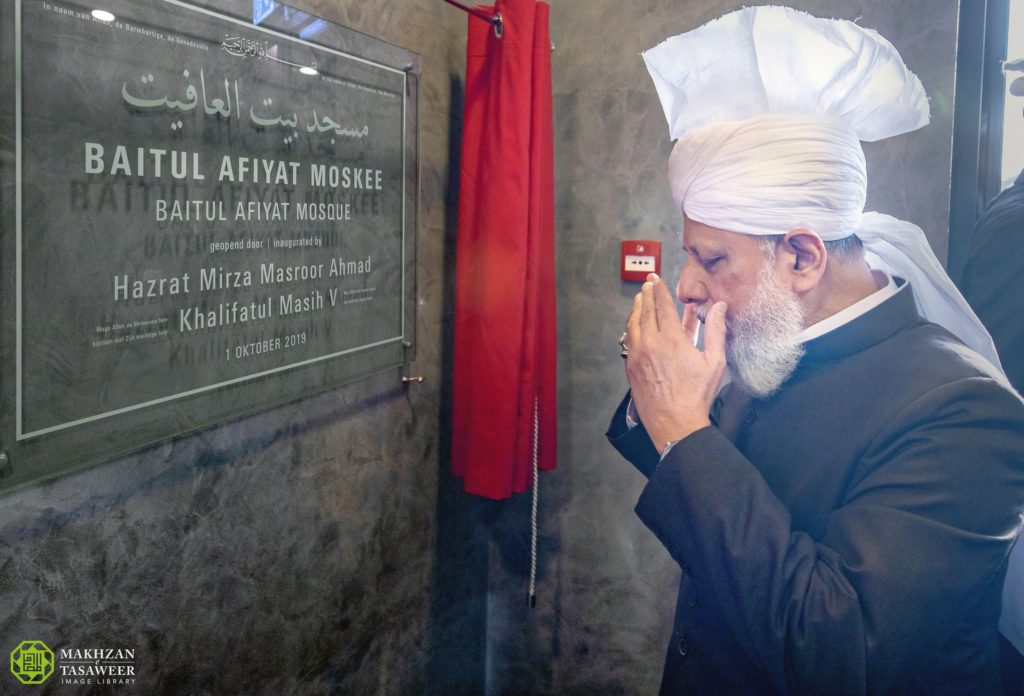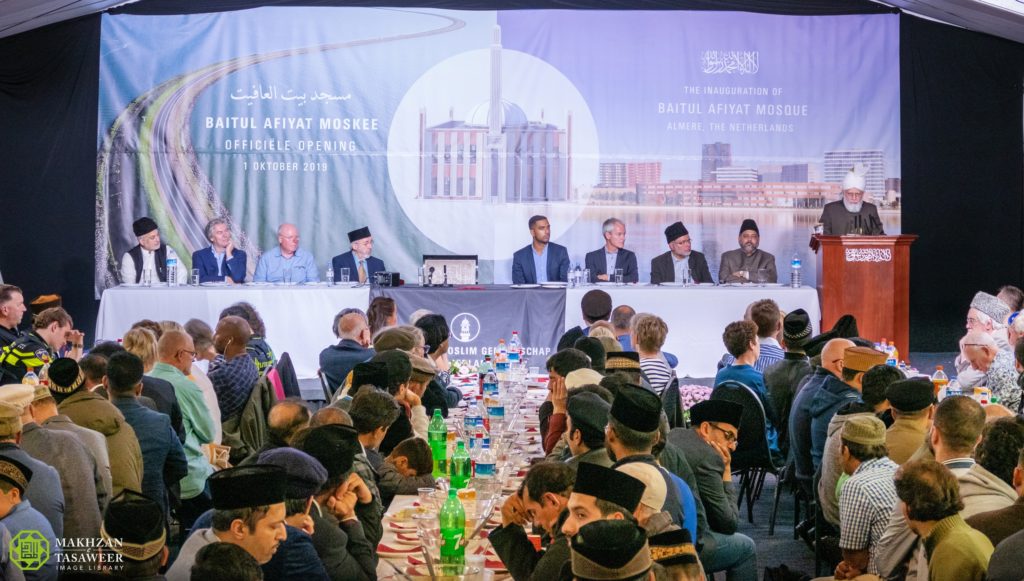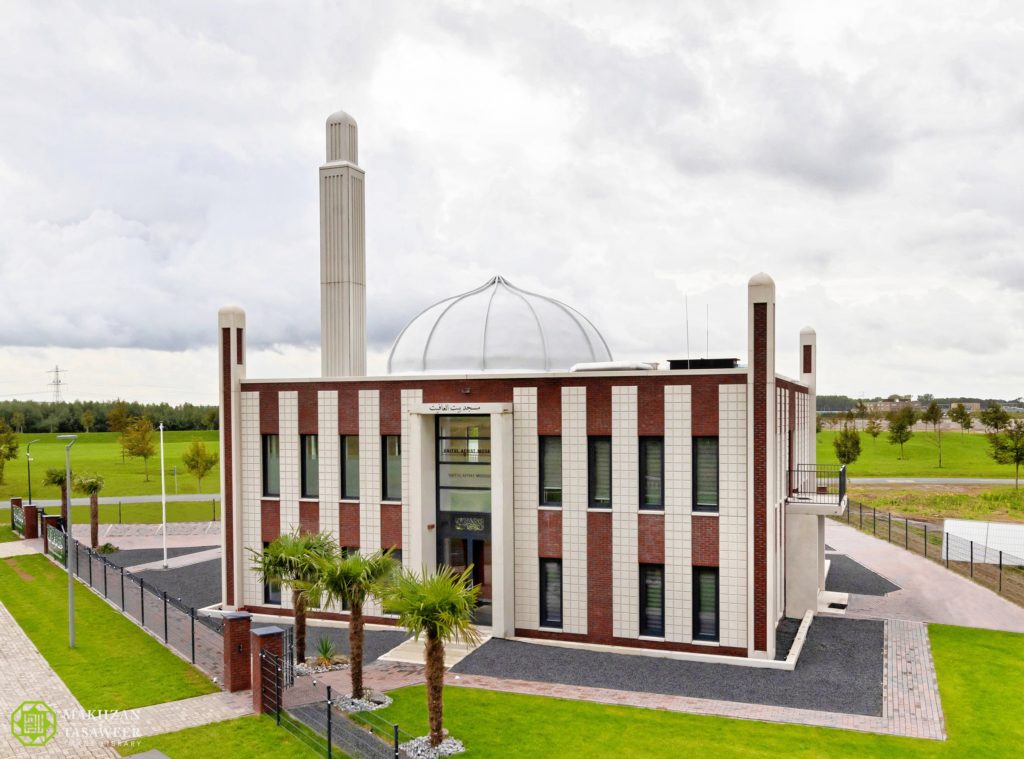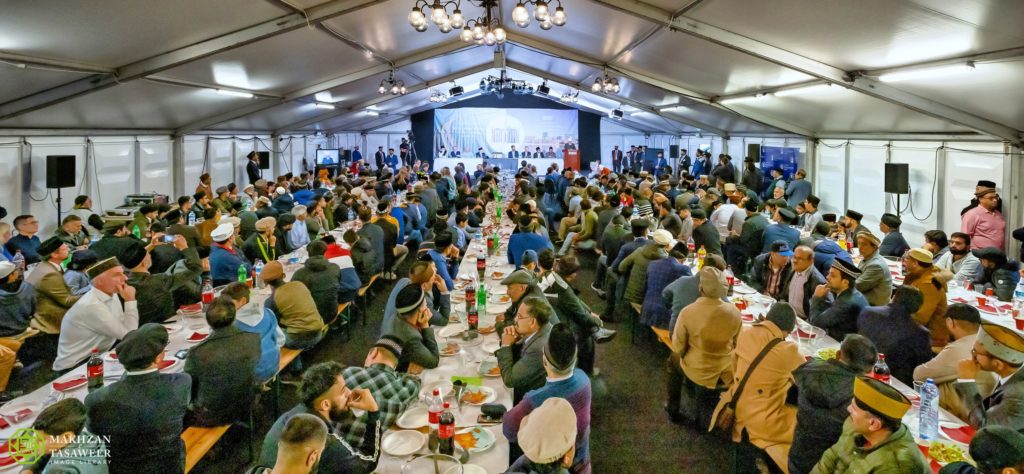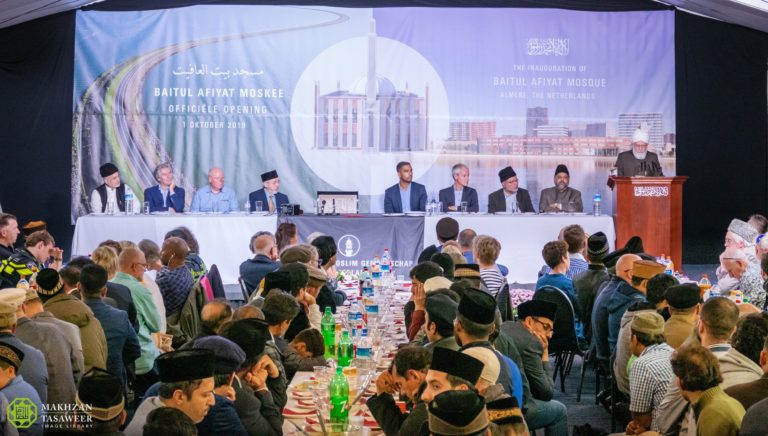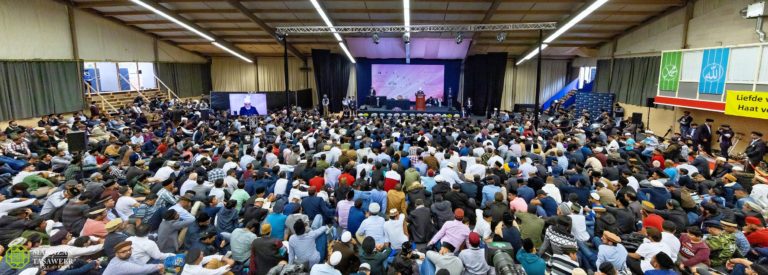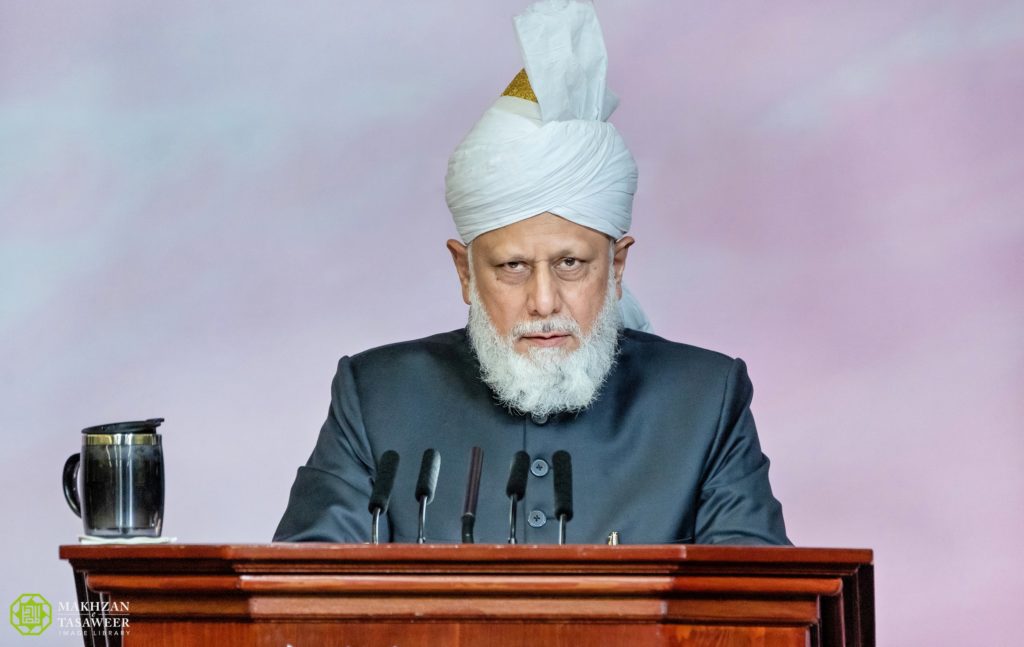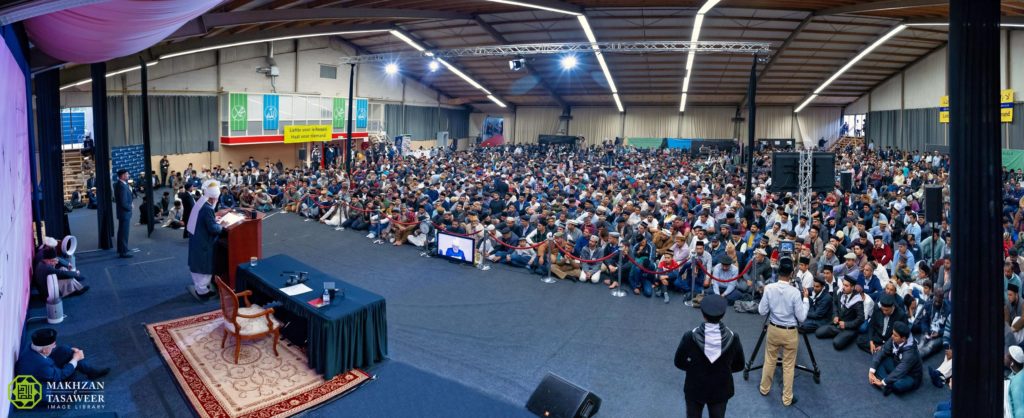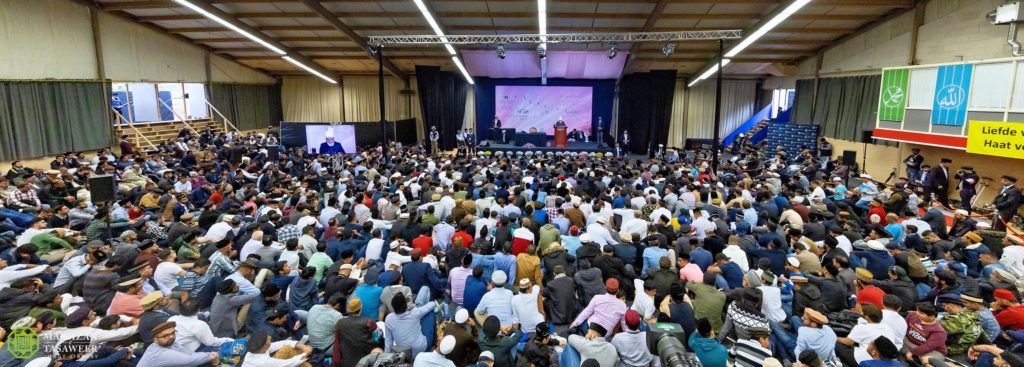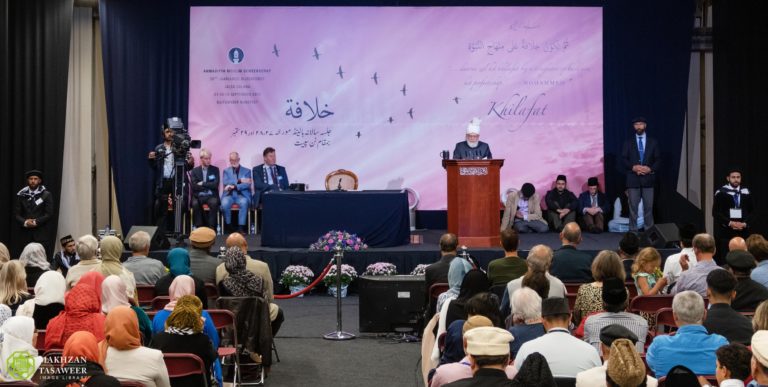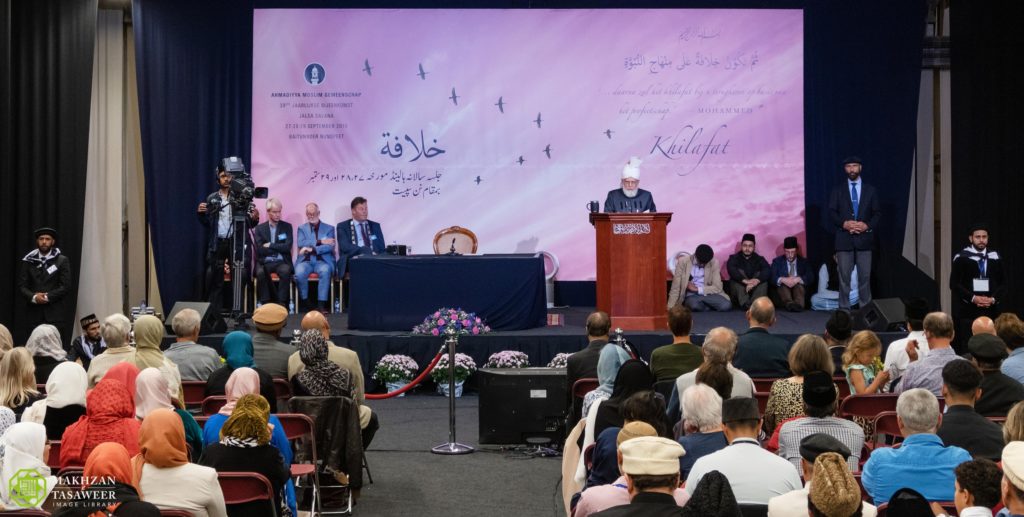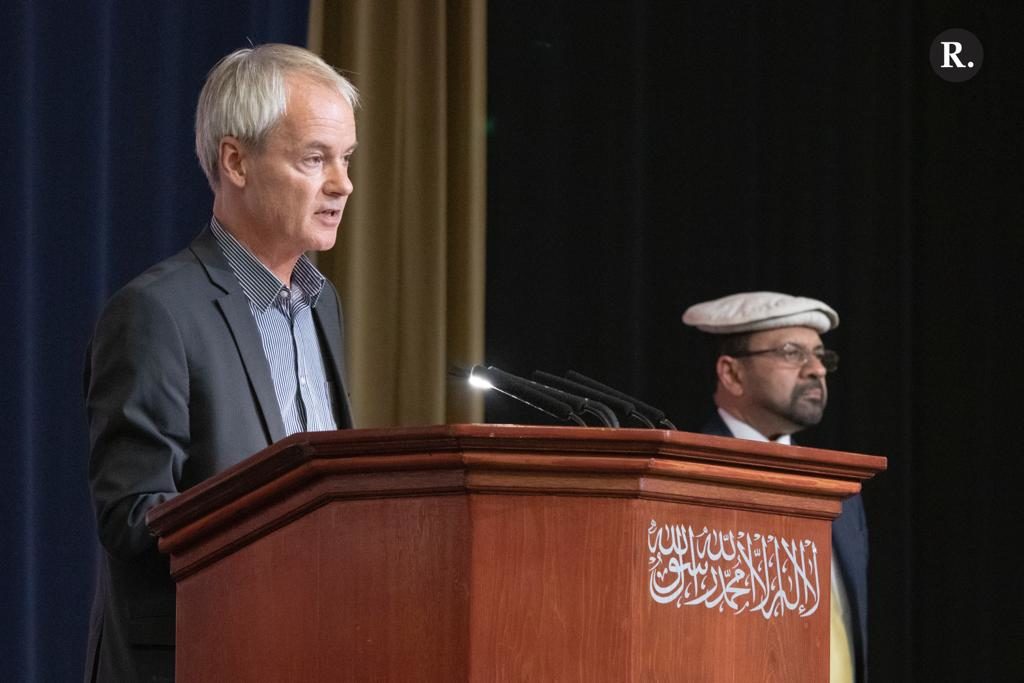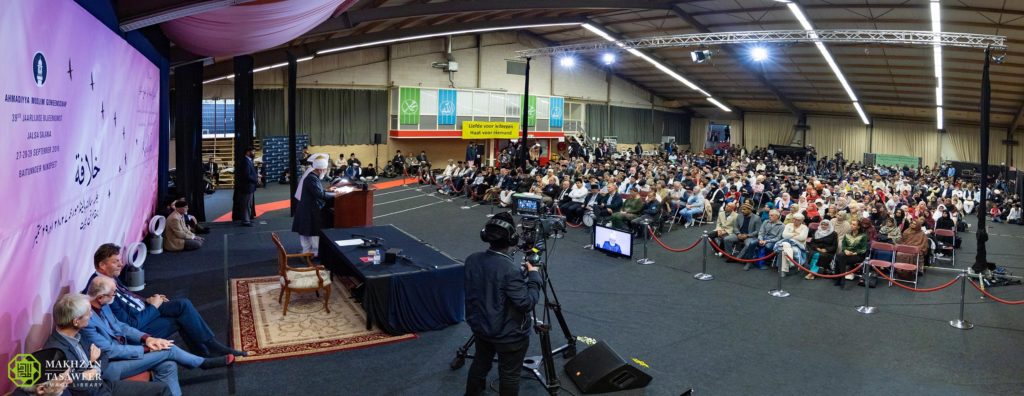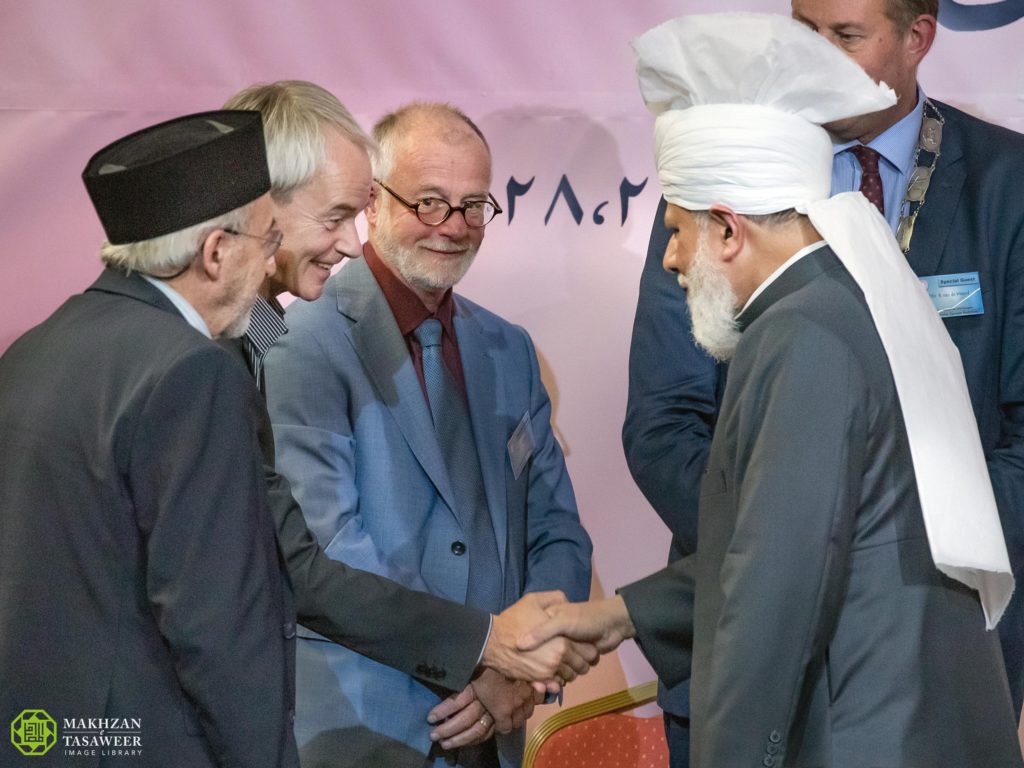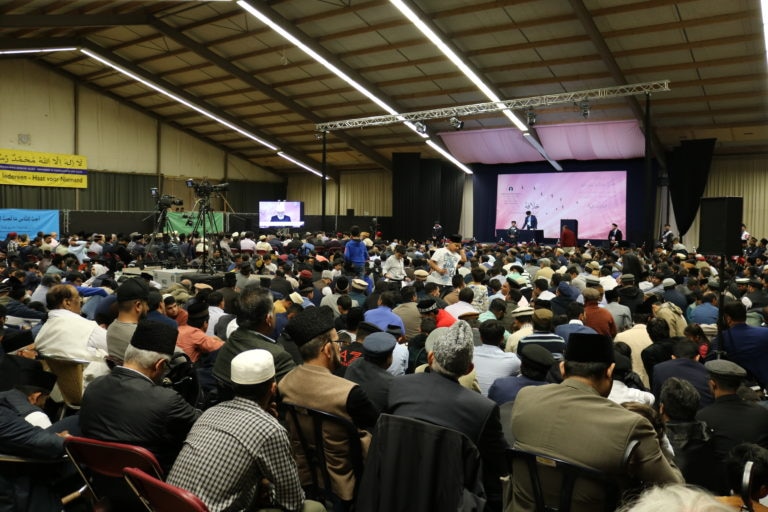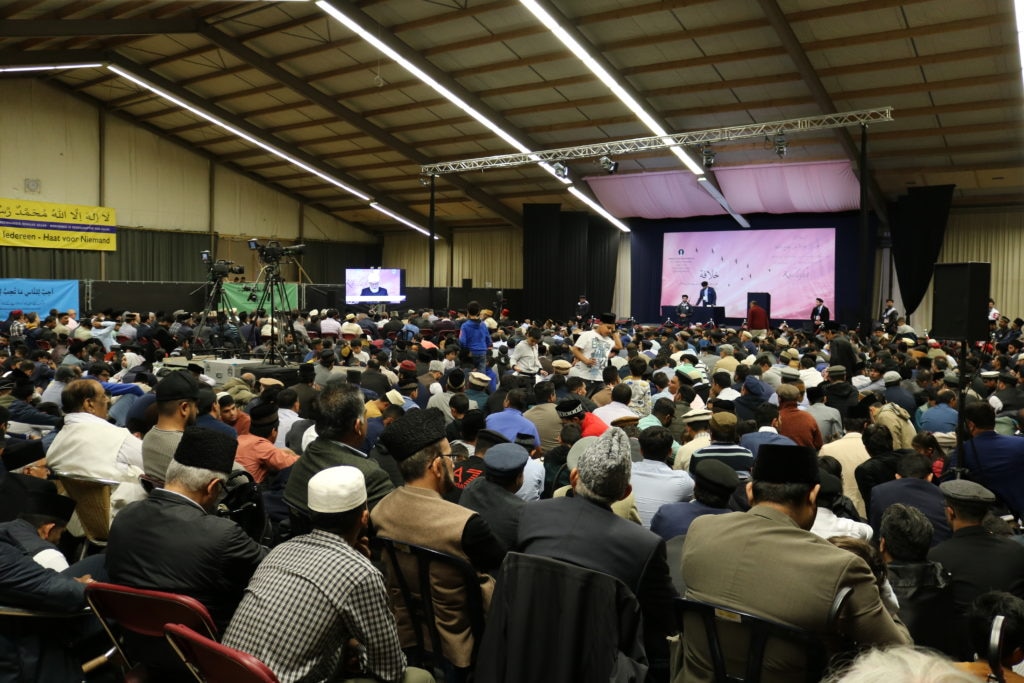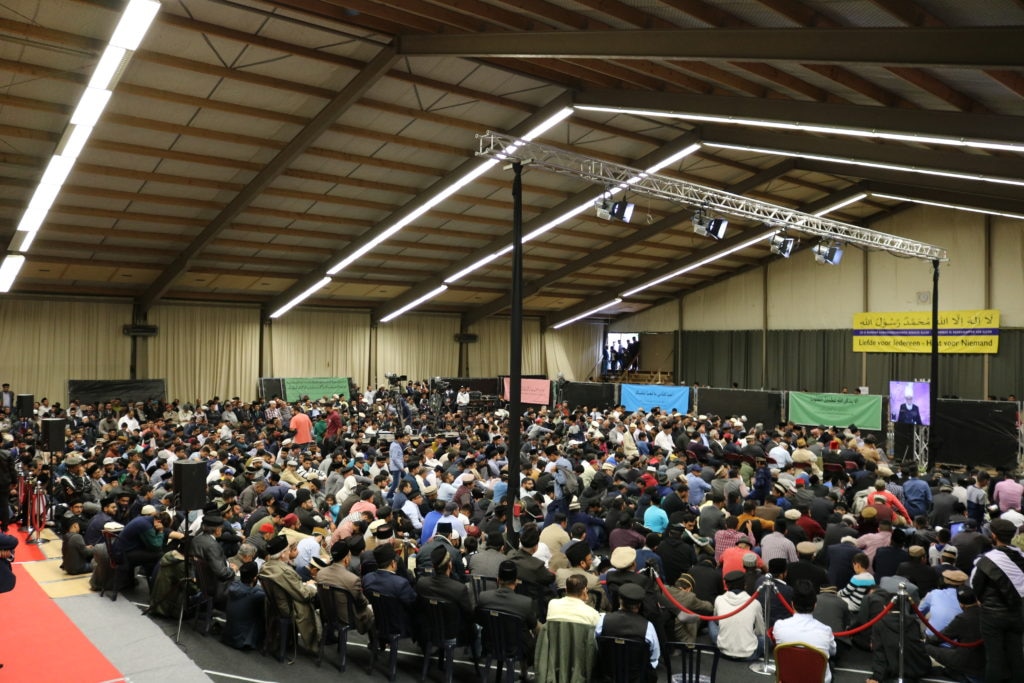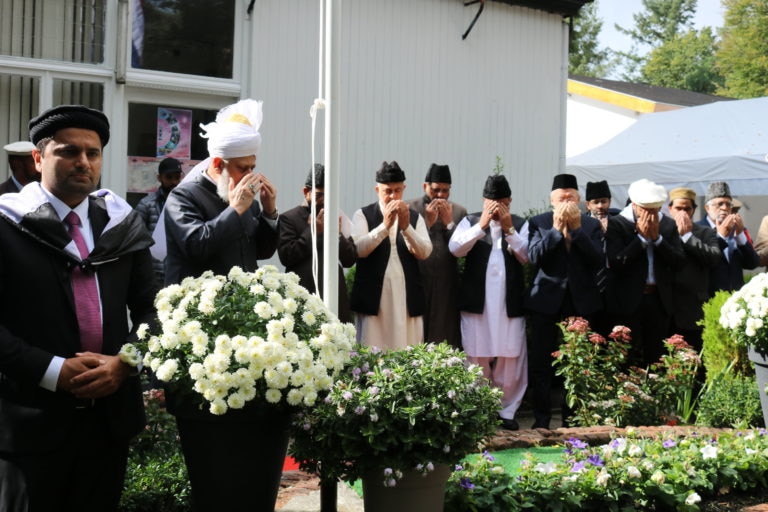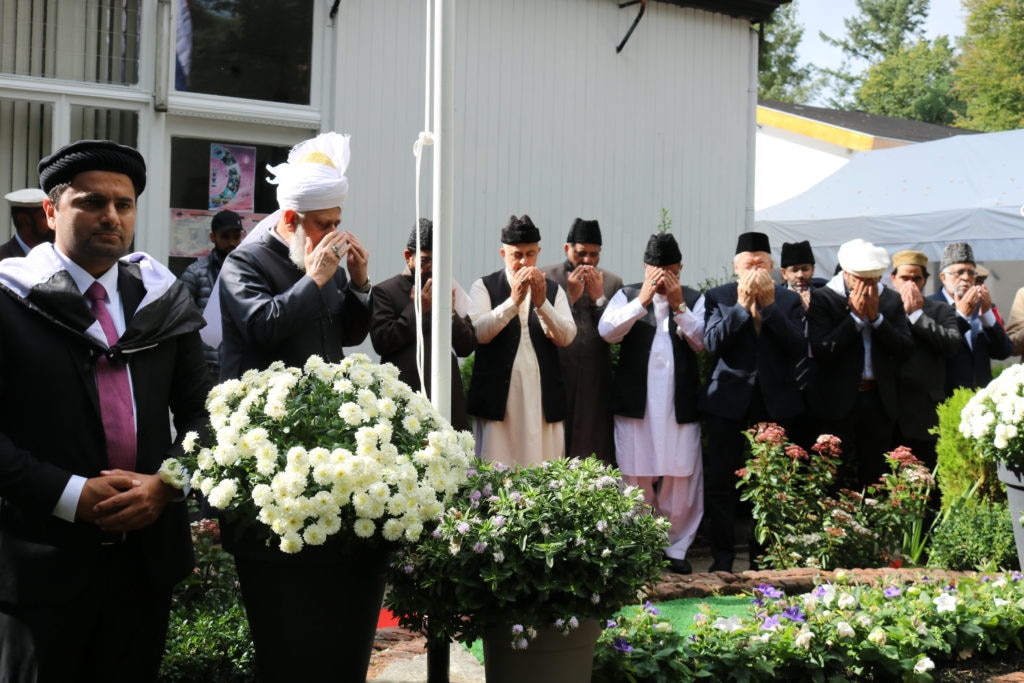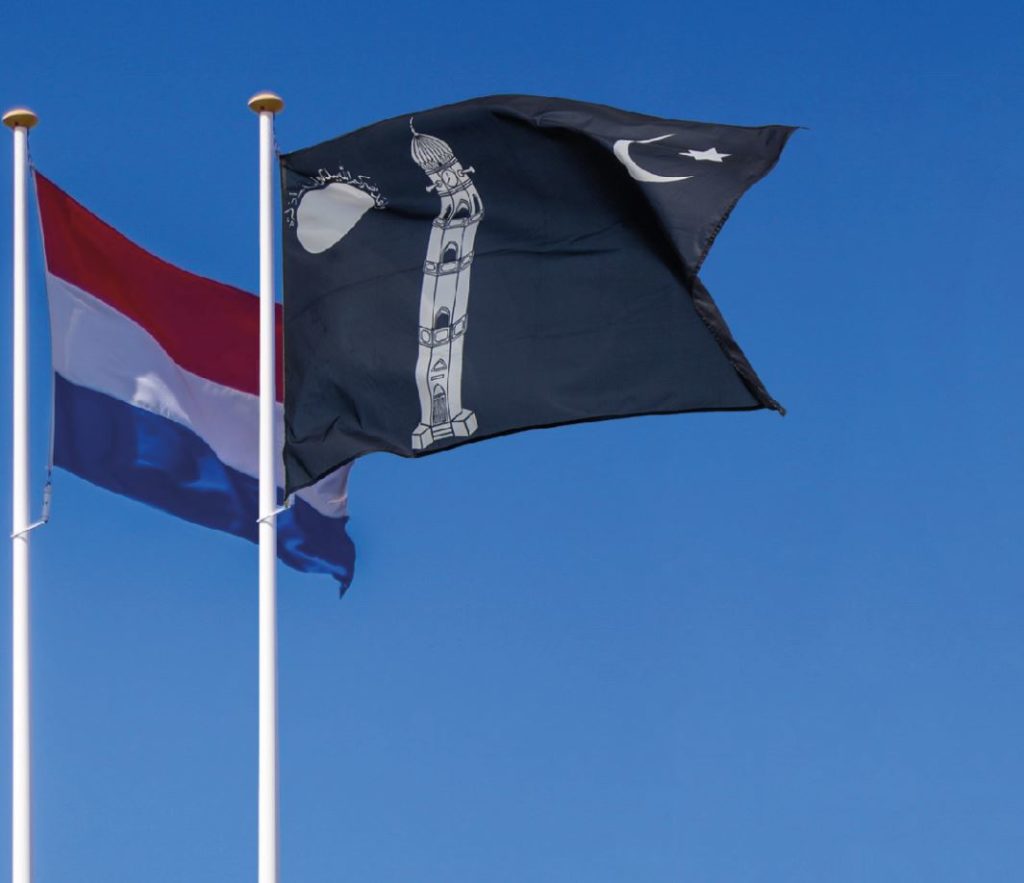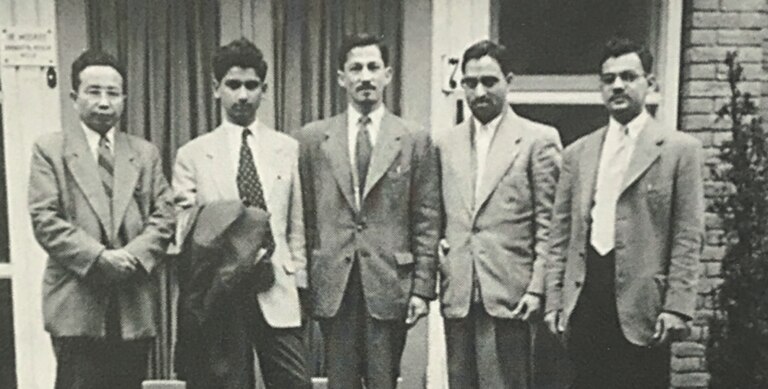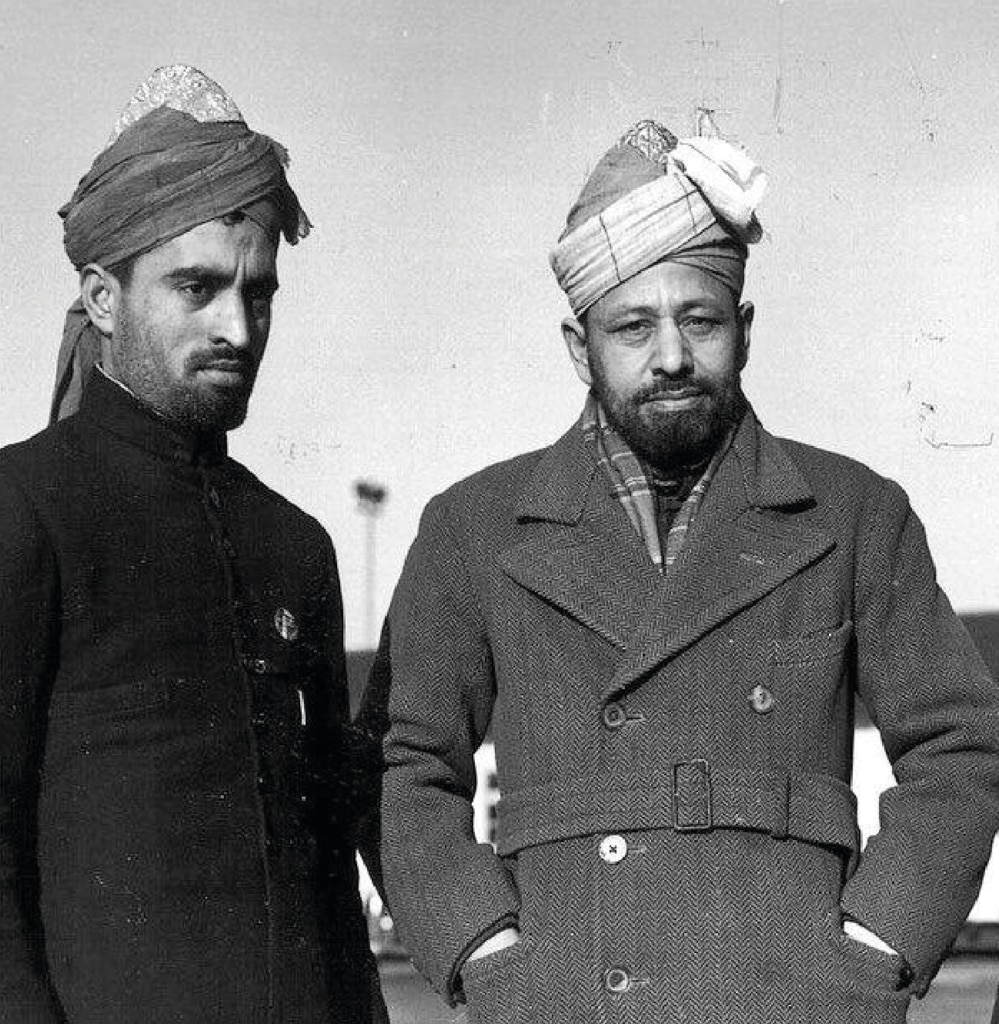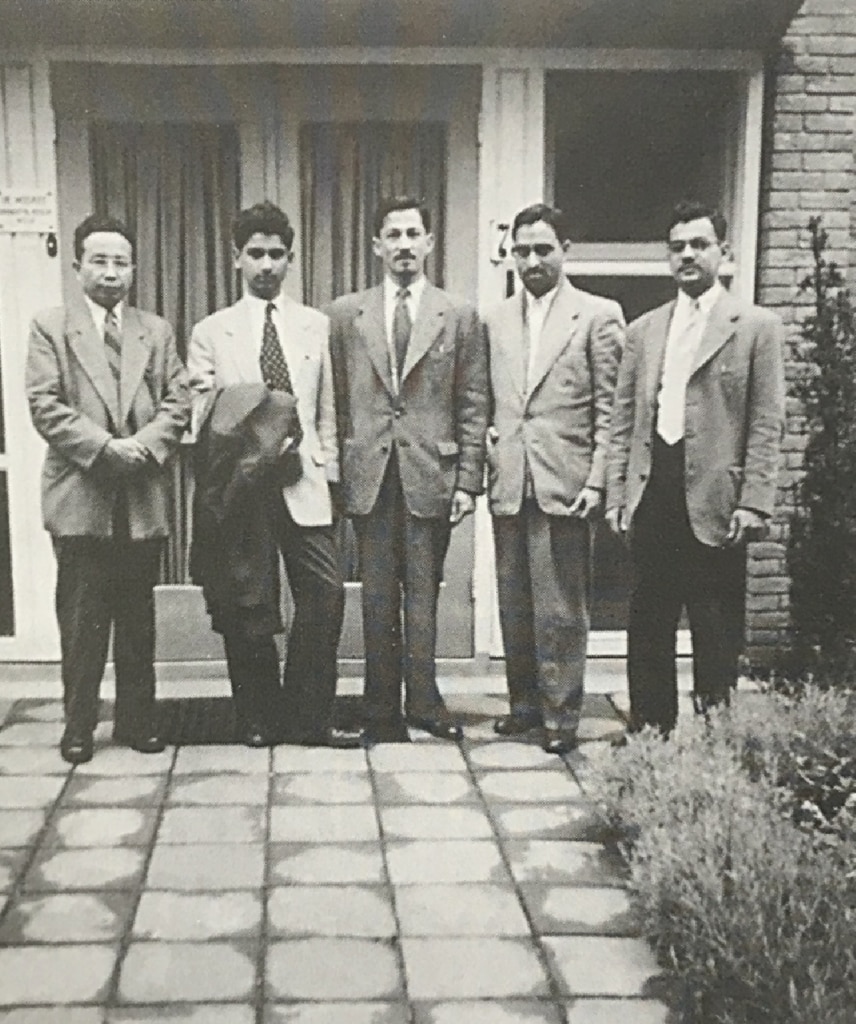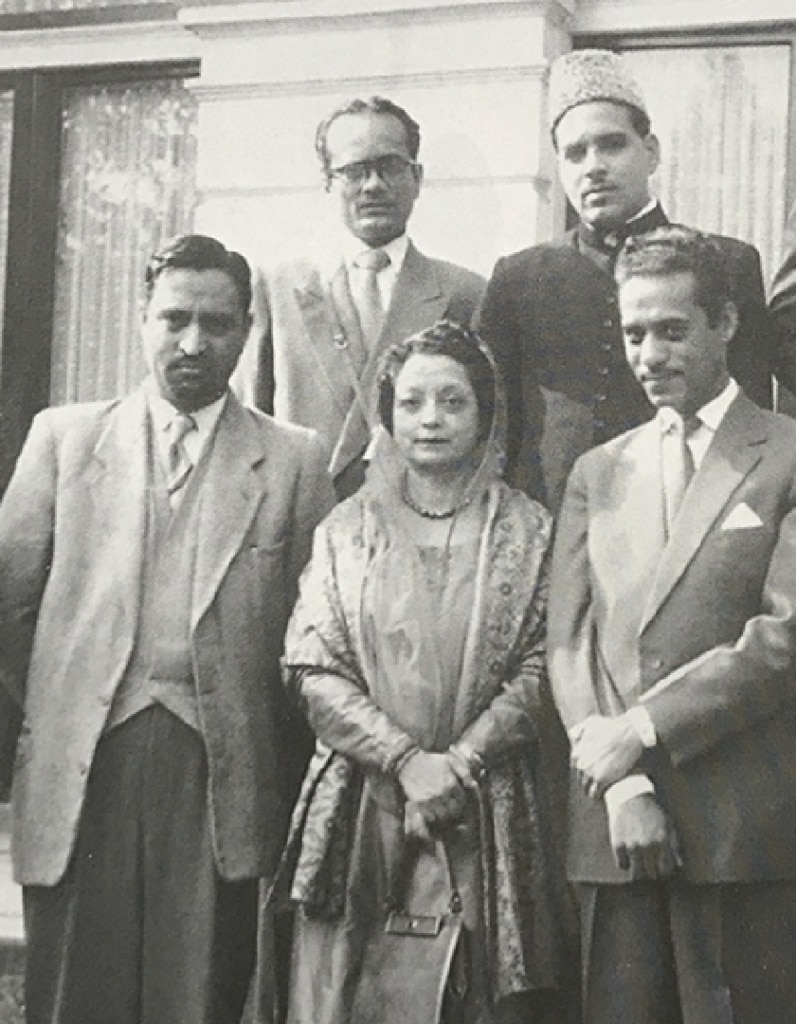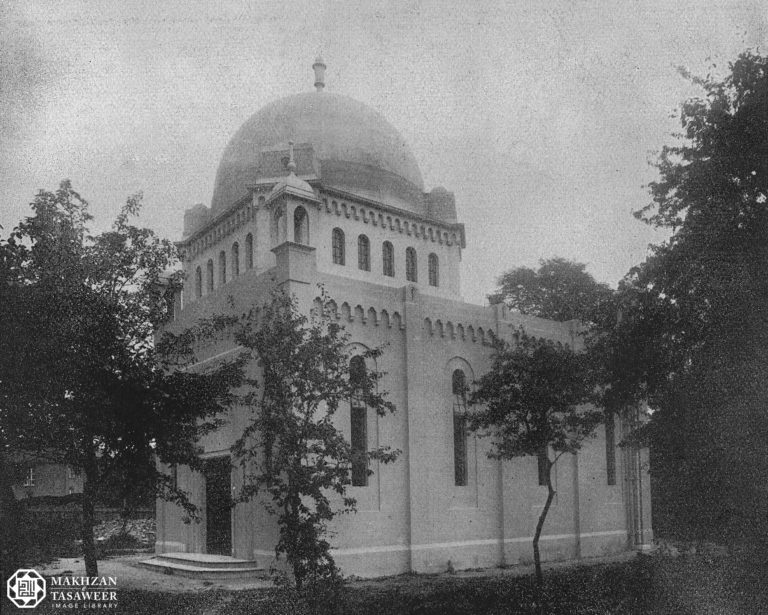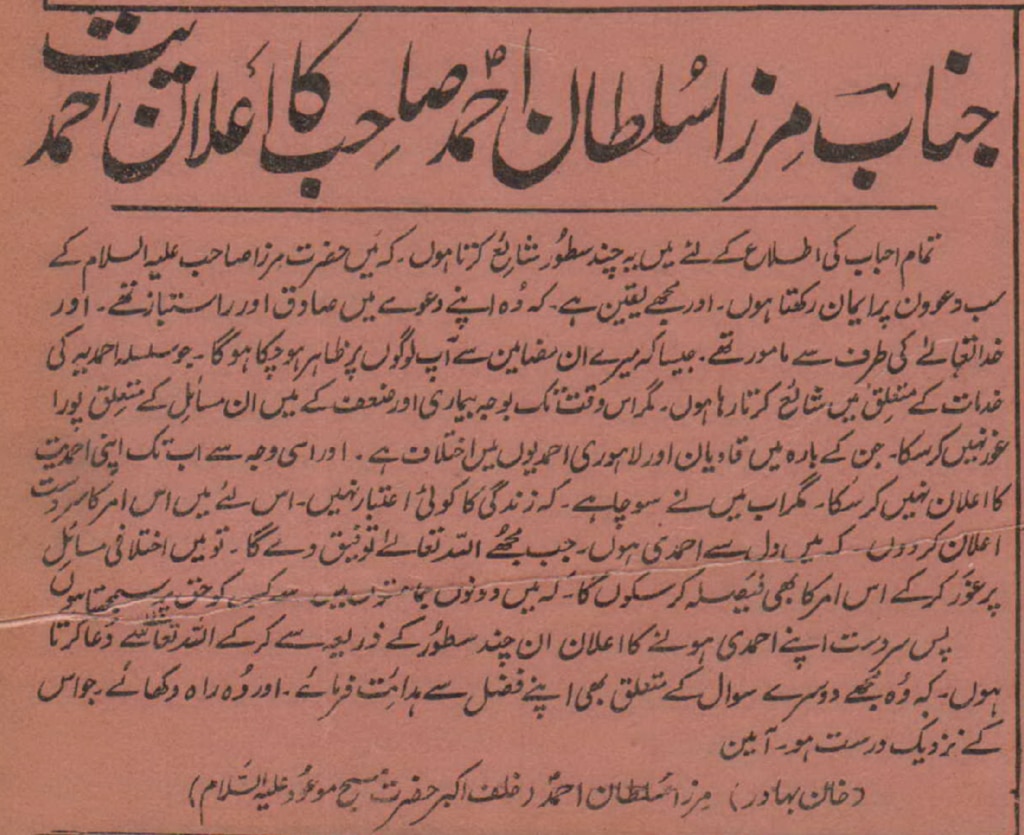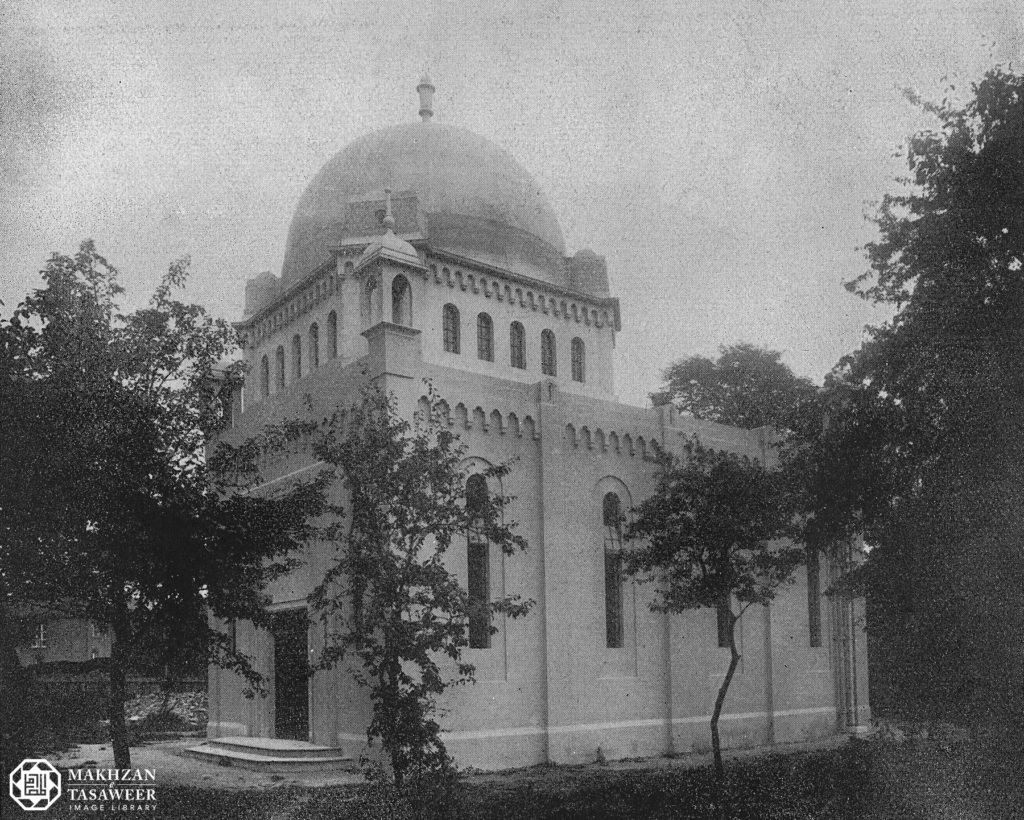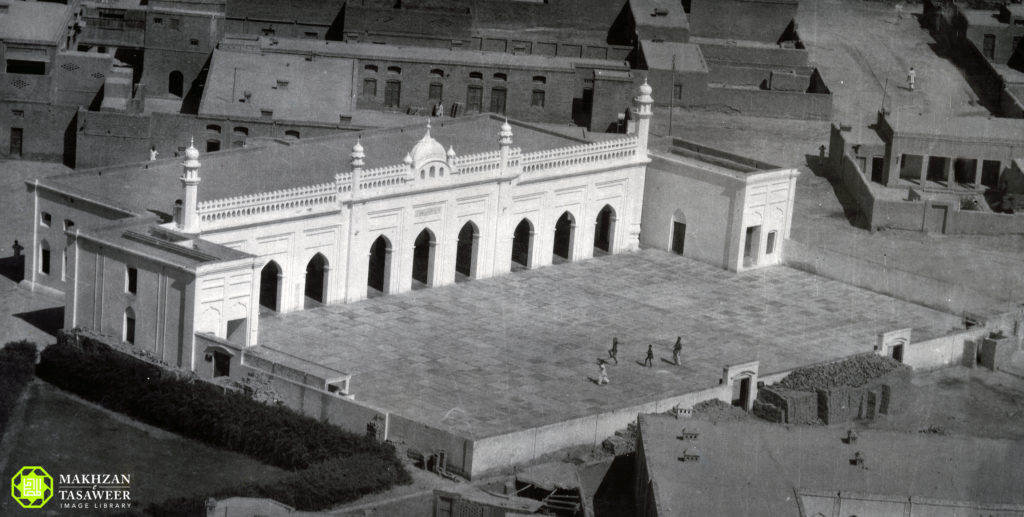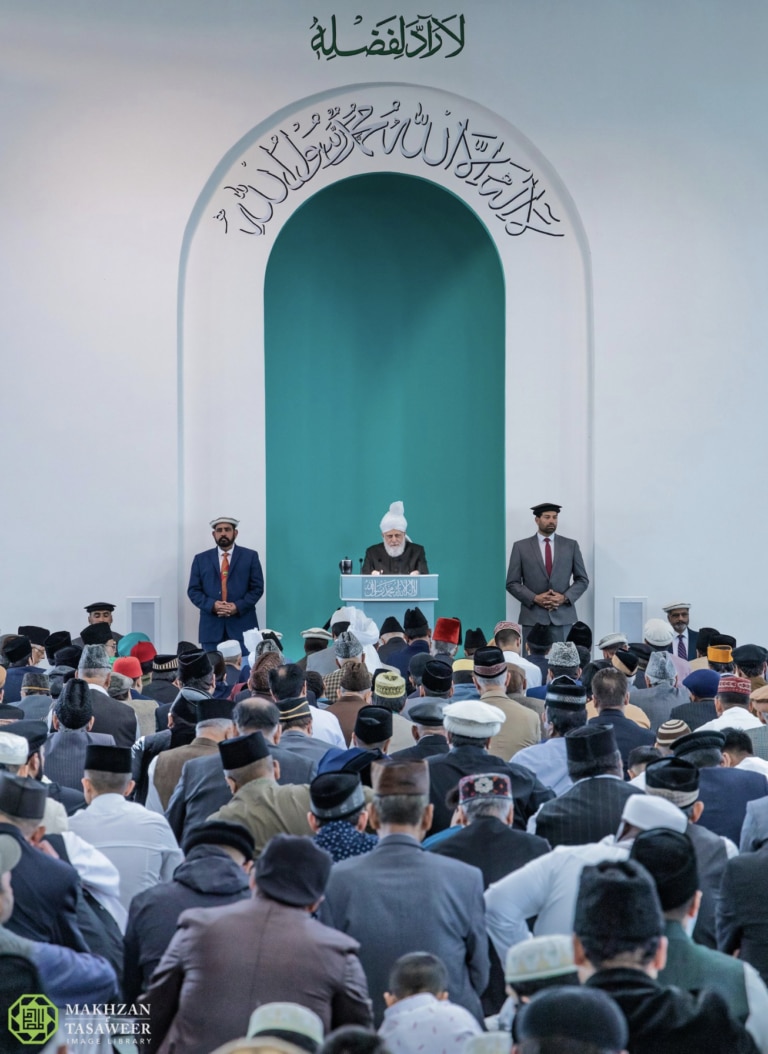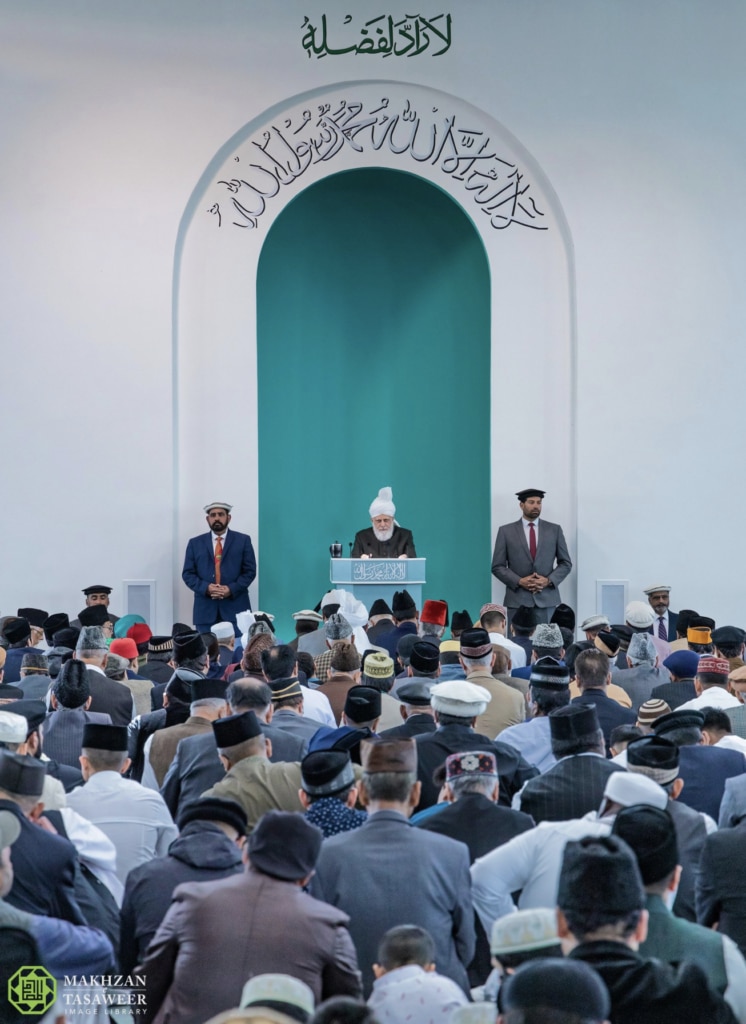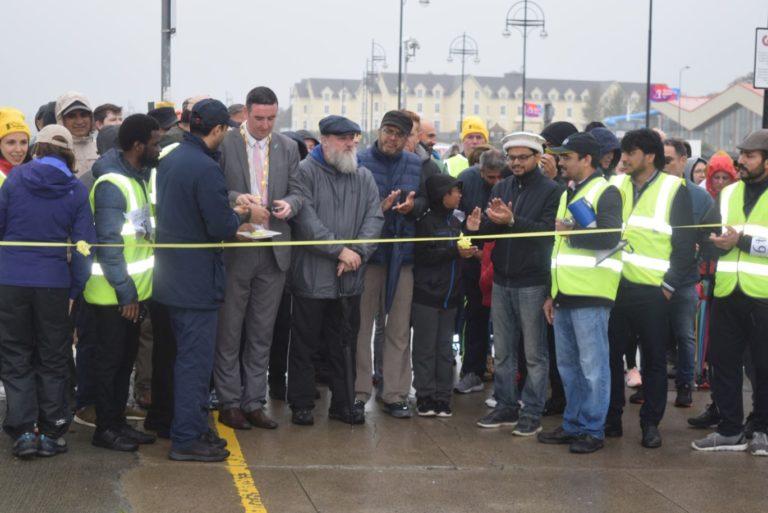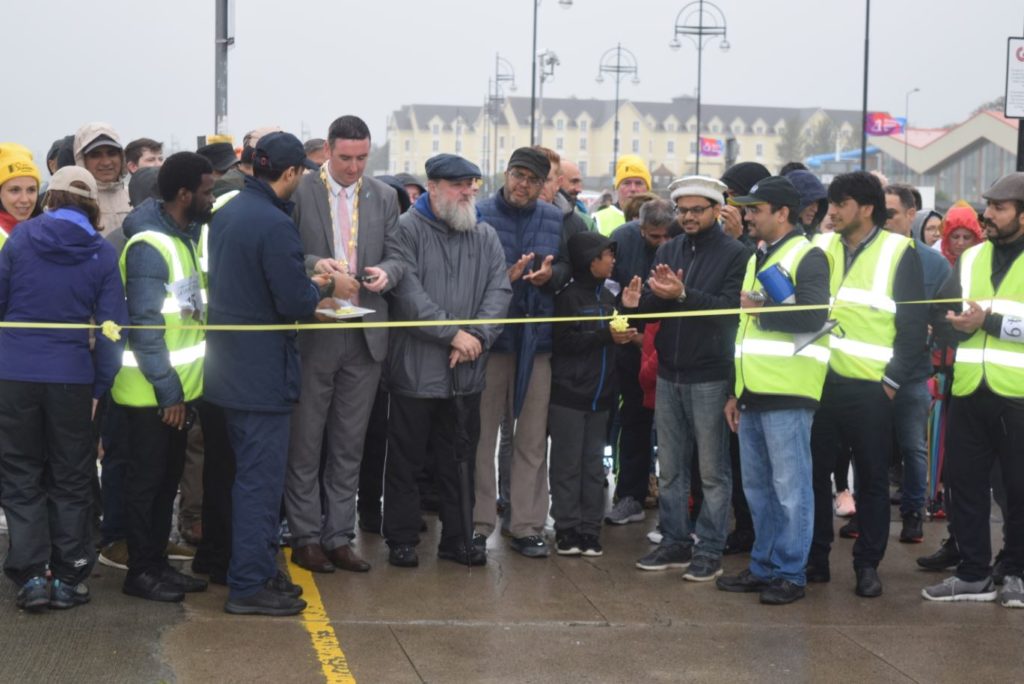Friday Sermon
30 August 2019
Men of Excellence
After reciting the Tashahud, Ta‘awuz, and Surah al-Fatihah, Hazrat Khalifatul Masih Vaa stated:
In
continuation of the accounts of the Badri companions [those companions who took
part in the Battle of Badr] the first companion that I will mention today is
Hazrat Utbahra bin Masud Huzalli. The title of Hazrat Utbahra
bin Masud Huzalli was Abu Abdullah. He belonged to the tribe of Banu Huzail. (Usdul
Ghaba Fi Ma’rifat as-Sahaba, Vol. 3, p. 563, Utbahra bin Masud,
Dar-ul-Kutub al-Ilmiyyah, Beirut, 2008)
Hazrat Utbahra bin Masud was a confederate
of the tribe of Banu Zuhrah. His father was Masud bin Ghafil and his mother’s
name was Ummi Abd bint Abdi Wudd. He was the brother of Hazrat Abdullahra
bin Masud, who was also among the first converts to Islam in Mecca. He was also
among those who participated in the second migration to Abyssinia. (Al-Tabaqaat-ul-Kubra
li ibn Sad, Vol. 4, p. 381, Utbahra bin Mas’ud, Wa min Hulafaa
Bani Zahra bin Kilab, Dar Ihyaa al-Turath al-Arabi, Beirut, 1996)
Hazrat Utbahra bin Masud was among the
Ashab as-Suffah. (Al-Mustadrak Ala al-Sahihain, Vol. 5, p. 1615, Kitab
al-Hijra, Hadith 4294, Maktabah Nizar Mustafa al-Baaz, Makkah Mukarramah,
Al-Riyad, 2000)
With reference to various historical sources, Hazrat
Mirza Bashir Ahmad Sahibra has written the following details with
regard to the people of as-Suffah. He writes:
“To one corner of the mosque, a veranda was built,
which was referred to as Suffah. This was for those destitute Muhajirin who did
not own any home of their own. These people would stay here and were known as
the Ashab as-Suffah. As such, they would remain in the company of the Holy
Prophetsa day and night, perform worship, and recite the Holy Quran.
These people possessed no means of permanent subsistence. The Holy Prophetsa
would take care of them personally and whenever the Holy Prophetsa
would receive a gift etc., or there was something available at home, he would
especially separate their share. As a matter of fact, at times, the Holy
Prophetsa would himself starve and send whatever was in his home to
the Ashab as-Suffah. The Ansar would also remain engaged in their hospitality
in as much as possible, and would often attach clusters of dates within the
mosque. However, despite all this, they lived in a state of adversity, and
would often reach a state of starvation. This state continued for many years
until some found work, due to the expansion of Medina, and others began
receiving support from the National Baitul-Mal.” (Sirat Khatamun-Nabiyyin, Hazrat
Mirza Bashir Ahmadra, p. 270)
Moreover, we find the following details about these
people in another source:
These people would remain present at the house of the
Holy Prophetsa during the day, listening to the Ahadith and they
would spend the night at the veranda [of the Prophet’s mosque]. A veranda is called suffah in the
Arabic language. Hence, these saintly men were referred to as Ashab as-Suffah.
None of them ever possessed two pieces of clothes at one time; so that one
could cover the upper body and the other to cover the lower body. They would
tie a piece of garment to their necks in a way that it would hang down to their
thighs. They did not possess enough clothes [to cover the entire body].
Hazrat Abu Hurairahra was one of those
saintly men. He narrates:
“I saw 70 men from among the Ashab as-Suffah, whose
clothes would not even reach their thighs. When they used to cover themselves,
the cloth would hardly reach down to the knees.” Initially, their source of income was that a
group of them would go to the forest during the day, collect some firewood,
sell it and thus acquire some food for their brothers. Most of them would break
the branches of palm trees and hang them onto the roof of the mosque. Whenever
people used to come from outside and see them, they used to think that these
people were mad and foolish for they were sitting there without any reason. Or
perhaps they would think that these people are so engrossed in love with the
Holy Prophetsa that they do not wish to leave his threshold.
Nevertheless, if the Holy Prophetsa
received some Sadaqah [charity] from anywhere, he would send it to them and if
he received any food, he would invite them, and would sit down with them and
eat together. It often so happened that in the evenings, the Holy Prophetsa
would assign the Muhajirin and the Ansar to take one or two individuals from
among the Ahl-e-Suffah and feed them according to their own capacity. Thus, at
times, such occasions arose that some of them were sent with the Muhajirin, and
others were sent with the Ansar so that they may provide them with an evening
meal.
Hazrat Saadra bin Ubada was a very generous
and wealthy companion and at times, he would take 80 guests with him. He was so
wealthy that he would take up to 80 guests with him at night and feed them.
According to various narrations, the number of the Ahl-e-Suffah varied at
different times. There were at least twelve and it also reported that at one
point there were 300 individuals who stayed at Suffah. In fact, in one
narration, their total number has been mentioned to be 600 companions.
The Holy Prophetsa had great love for them.
He used to sit with them in the mosque, eat with them and would encourage
others to honour and respect them. Thus, he did not allow anyone to disrespect
or dishonour them simply because they would not do anything else besides
sitting there the whole time, rather the Holy Prophetsa used to say
that these people sat there simply to listen to his words. Therefore, everyone
should honour and respect them.
Once, during a sitting of a congregation of the
Ahl-e-Suffah in the presence of the Holy Prophetsa, a complaint was
made that the dates had adversely affected their stomachs, that is, they only
received dates to eat and did not get anything else. The Holy Prophetsa
heard their complaint and in order to console them, he delivered a speech
saying:
“What is it that I am hearing that the dates have had
an adverse effect on your stomachs? Are you not unaware of the fact that dates
are the very nourishment of the people of Medina and people support us through
these [by donating them as charity] and it is through these that we also
support you?”
Following this, the Holy Prophetsa said,
“By God! For almost two months now, smoke has not risen in the house of the
Prophetsa of God.” That is, that the Holy Prophetsa and
also his family have only lived on water and dates. In any case, these
Ahl-e-Suffah were astonishingly devoted people. Even though they mentioned and
complained about eating dates and that it had adversely affected their
stomachs, despite this, they did not leave. They continued to remain seated
there with complete devotion and would either remain hungry, or suffice by
eating dates or whatever they were given.
It is further written that at night, these noble
individuals would usually be occupied in worship and reciting the Holy Quran. A
muallim [religious teacher] had been appointed for them. They would go
to him at night and recite [the Holy Quran]. Those who could not read or were
unable to recite the Holy Quran correctly, or those who wished to memorise it
would be taught at night by the muallim. Owing to this, most of them
were called qaris [people who recite the Quran] and if people were to be
sent anywhere for the propagation of Islam, these very individuals would be
sent.
Once they had been well-versed, they were called qaris
and were also sent to teach others. Later on, many of these companions were
appointed to different important offices. In other words, the Ashab as-Suffah
did not merely sit there, in fact, they were appointed to important offices.
Hence, Hazrat Abu Hurairahra served as the governor of Bahrain
during the Khilafat of Hazrat Umarra and during the rule of Hazrat
Muawiyahra, he served as the governor of Medina.
Hazrat Saadra bin Abi Waqas served as the
governor of Basra and he established the city of Kufa. Hazrat Salman Farsira
served as the governor of Madain. Hazrat Ammarra bin Yasir also
served as the governor of Kufa.
All these companions were among the Ashab-e-Suffah.
Hazrat Ubadahra bin Jarah served as the governor of Palestine.
Hazrat Anasra bin Malik served as the governor of Medina during the
rule of Hazrat Umar bin Abd-il-Aziz. There was also a commander among these
very individuals, who played a significant role in the Islamic conquests.
Hazrat Zaidra bin Thabit was not only a great commander, but was
also appointed the supreme judge during the Khilafat of Hazrat Umarra.
(Siyar as-Sahaba, Vol. 5, pp. 548-550, Darul Ishaat, Karachi, 2004) (Justaju-e-Madinah
az Abdul Hameed Qadir, pp. 672-681)
Hazrat Abu Saeed Khudrira narrates:
“I sat down in the congregation of the
poor Muhajreen.” Meaning he went and sat among the congregation of
the Ashab-e-Suffah, who were concealing
their private parts from each other [due to lack of clothing] – almost half of
their body was not covered with any clothes. He continues, “A qari [reciter of the Holy Quran]
amongst us was reciting the Holy Quran, and the Messengersa of Allah
arrived. The qari stopped the recitation as the Holy Prophetsa stood
by. Then the Holy Prophetsa said Salam (greetings of peace) and enquired, ‘What are you all
doing?’ We replied, ‘This qari is reciting the Holy Quran for us and we are
listening to the Book of Allah’. Then the Holy Prophetsa stated,
‘All praise belongs to Allah, Who has granted me such people in my Ummah and that
He has instructed me to remain patient with them.’” Meaning that the Holy
Prophetsa was commanded to remain patient just like they were
demonstrating patience.
The narrator further states:
“The Holy Prophetsa sat down among us and
in order to show that his blessed person was a part of us, he signaled his
blessed hand in a circle” meaning that he was also from amongst them and he sat
down with them, and they created a circle around him and turned their attention
towards him.
The narrator states:
“In my opinion, the Holy Prophetsa did not
recognise anyone other than me.” That is, the narrator says that he was the
only one that the Holy Prophetsa recognised since there was a large
number of people in the gathering. The Holy Prophetsa stated, ‘There
are glad tidings for this group of poor Muhajirin! For on the Day of
Judgment, you shall enter paradise with a perfect spiritual light half a day
before the wealthy people and this half of a day is equivalent to 500 years.’”
(Sunan Abi Daud, Kitab al-Ilm, Bab Fi al-Qisas, Hadith 3666) The
Promised Messiahas also received a revelation in Arabic which has
the mention of theAshab as-Suffah. The revelation is as follows:
اَصْحَابُ الصُّفَّةِ
وَمَا اَدْرَاکَ مَا اَصْحَابُ الصُّفَّةِ تَرٰي اَعْيُنَھُمْ تَفِيْضُ مِنَ
الدَّمْعِ۔ يُصَلُّوْنَ عَلَيْکَ۔ رَبَّنَا اِنَّنَا سَمِعْنَا مُنَادِيًا
يُّنَادِيْ لِلْاِيْمَانِ وَ دَاعِيًا اِلَي اللّٰہِ وَسِرَاجًا مُنِيْرًا
“Do you know who the Ashab as-Suffah are?
You will see their eyes shedding tears; they will call down blessings upon you.
They will send blessing upon you and supplicate: ‘Our Lord we have heard the
voice of a caller, calling people to the faith and a Summoner to Allah and a
refulgent lamp.” (Haqiqatul Wahi, Ruhani Khazain, Vol. 22, p. 78)
This revelation of the Promised Messiahas
was regarding some of his companions in that he would also be granted
companions with similar qualities. The Promised Messiahas states:
“The people of Suffah in the time of the Holy Prophetsa
were extremely honorable and firm in their faith. Their example of sincerity
and devotion is a model [for everyone to follow]. Allah the Almighty has also
revealed to me that He shall also grant me individuals like them.”
According to Sahih Bukhari, Hazrat Utbahra
bin Masud is counted among the companions who took part in the Battle of Badr,
whereas according to other books about the lives of the companions, such as Usdul
Ghaba Fi Ma‘rifat Al Sahabah, Al-Isaba Fi Tamyeez Al-Sahabah, Al-Isti‘ab
Fi Ma‘rifat Al Ashab, Al-Tabaqaat-ul-Kubra, etc. it is reported that he participated
in the Battle of Uhud and the subsequent battles and not in the Battle of Badr.
(Sahih al-Bukhari, Kitabul Maghazi, Bab tasmiyatu man Summiya min Ahli
Badr) (Usdul Ghaba, Vol. 3, p. 563, Utbah bin Masud, Dar-ul-Kutub
al-Ilmiyyah, Beirut, 2008) (Al-Isaba Fi Tamyeez al-Sahaba, Vol. 4, p.
366, Utbah bin Masud, Dar-ul-Kutub al-Ilmiyyah, Beirut, 1995) (Al-Isti‘ab,
Vol. 3, p. 1030, Utbah bin Masud al-Hazli, Dar-ul-Jeel, Beirut) (Al-Tabaqaat-ul-Kubra
li ibn Saad, Vol. 4, p. 381, Wa min Hulafaa Bani Zahra bin Kilab, Utbah bin
Masud, Dar Ihyaa al-Turath al-Arabi, Beirut, 1996)
Nonetheless, in Bukhari it is recorded that
Hazrat Utbahra bin Masud was a Badri Companion.
Hazrat Utbahra bin Masud passed away in 23
AH during the Khilafat of Hazrat Umarra bin Khattab and Hazrat Umarra
led his funeral prayer. Qasim bin Abdur Rahman narrates that Hazrat Umarra
bin Khattab waited for Hazrat Utbah’sra mother, Hazrat Ummi Abdra,
in order for her to attend the funeral. (Al-Tabaqaat-ul-Kubra li ibn Saad,
Vol. 4, p. 238, Utbah bin Masud, Wa min Hulafaa Bani Zahra bin Kilab, Dar Ihyaa
al-Turath al-Arabi, Beirut, 1996) (Al-Bidayatu Wa al-Nihayatu Li ibn Kathir,
Vol. 4, Ch. 7, p. 138, thumma dakhalat Sunnati Thalathi wa Ishreen,
Dar-ul-Kutub al-Ilmiyyah, 2001)
Imam Zuhri narrates that with respect to the migration
and spending time in the company of the Holy Prophetsa, Hazrat
Abdullahra bin Masud was not far behind his brother, Hazrat Utbahra.
In other words, Hazrat Utbahra accepted Islam before his brother,
Hazrat Abdullahra bin Masud. Abdullah bin Utbah narrated that Hazrat
Abdullahra bin Masud became emotional at the time of his brother,
Hazrat Utbahra bin Masud’s demise. Some people asked him why he was
crying, to which he replied, “He was my brother, but also my brother in faith.
After Hazrat Umarra bin Khattab, he was the dearest to me among the
people.” (Usdul Ghaba, Vol. 3, p. 563, Utbah bin Masud, Dar-ul-Kutub
al-Ilmiyyah, Beirut, 2008)
In a different narration, it is stated that when
Hazrat Abdullahra bin Masud learnt about the demise of his brother,
Hazrat Utbahra bin Masud, tears began to flow from his eyes and he
said:
إِنَّ هٰذِهِ رَحْمَةٌ جَعَلَهَا اللّٰهُ لَا يَمْلِكُهَا ابْنُ اٰدَمَ
“Verily this Mercy is bestowed to us from
God Almighty, but it is something that man is unable to overcome,” (Al-Tabaqaat-ul-Kubra
li ibn Saad, Vol. 4, p. 238, Utbah bin Masud, Wa min Hulafaa Bani Zahra bin
Kilab, Dar Ihyaa al-Turath al-Arabi, Beirut, 1996)
Meaning, everyone is destined to pass away, but for
virtuous individuals it becomes a mercy from God Almighty. According to another
narration, Hazrat Umarra bin Khattab would appoint Hazrat Utbahra
bin Masud as the local amir [in his absence]. (Al-Isaba Fi Tamyeez al-Sahaba,
Vol. 4, p. 366, Utbah bin Masud al-Hazli, Dar-ul-Fikr, Beirut, 2001)
The next companion that I will mention is Hazrat
Ubadahra bin Samit, who was an Ansari companion. Hazrat Ubadahra
bin Samit’s fathers name was Samit bin Qais and his mother’s name was Qurratul
Ain bint Ubadah. Hazrat Ubadahra was present during the first and
second pledge at Aqabah. He was the leader of the Banu Auf bin Khazraj clan of
the Khazraj tribe of the Ansar, who were also known as Qawaqil.
The reason why they were known as Qawqal is because
whenever anyone would seek the protection of a leader in Medina, that person
seeking protection would be told that they were free to ascend the mountain,
i.e. they had nothing to fear and could live there freely. In short, they were
able to roam about freely and did not need to worry about anything.
The people granting freedom became known as Qawaqila.
Ibn-e-Hisham states that whenever a leader from among them would grant
protection to another, he would also bestow them an arrow and would say that
they are free to go as they please. Thalabah bin Daad, the paternal grandfather
of Hazrat Numanra was known as Qawqal. Similarly, the leader of the
Khazraj tribe, Ghanam bin Auf was known as Qawqal, and in the same manner,
Hazrat Ubadahra bin Samit was also known by the title of Qawqal.
From among the Khazraj tribe, the clans of Banu Saalim, Bani Ghanam and the
Banu Auf bin Khazraj were all known as Qawaqilah and Hazrat Ubadahra
bin Samit was the leader of the Banu Auf tribe. (Usdul Ghaba, Vol. 3,
pp. 158-159, Ubadah bin Samit, Dar-ul-Kutub al-Ilmiyyah, Beirut, 2008) (Al-Tabaqaat-ul-Kubra
li ibn Sa‘d, Vol. 3, p. 414, Al-Numan bin Malik, Dar-ul-Kutub al-Ilmiyyah,
Beirut, 2012) (Al-Sirat al-Nabawiyyah li Ibn Hisham, p. 309, Al-Aqabah
al-Oola Wa Mus’ab bin
Umair, Dar-ul-Kutub al-Ilmiyyah, Beirut, 2001) (Taajul
Urus, Qifl, Vol. 15, p. 627, Bab al-Laam, Darul Fikr, Beirut, 1994)
One of Hazrat Ubadah’sra sons’ name was
Waleed, who was born to Jameela bint Abu Sa‘sa and his other son’s name was
Muhammad, who was born to Hazrat Umme Haram bint Milhaan. Hazrat Ausra
bin Samit, who is also a Badri Companion, was the brother of Hazrat Ubadahra.
(Al-Tabaqaat-ul-Kubra li ibn Saad, Vol. 3, pp. 280-281, Ubadah bin
Samit, Dar Ihyaa Al-Turath Al-Arabi, Beirut, 1996)
When Hazrat Abu Marsad Ghanavira migrated
to Medina, the Holy Prophetsa formed a bond a brotherhood with him
and Hazrat Ubadahra. Hazrat Ubadahra took part in all the
battles alongside the Holy Prophetsa including the Battles of Badr,
Uhud and Khandaq.
Hazrat Ubadahra passed away in Ramla,
Palestine in 34AH. According to some narrations, he passed away in Baitul
Maqdas and was subsequently buried there. His grave is known even today. Then,
in another narration, it is recorded that he passed away in Qubrus, after
Hazrat Umarra had appointed him as the leader of Qubrus.
At the time of his demise, Hazrat Ubadahra
was 72 years old. He was tall and had a large and handsome build. According to
some narrations it is stated that he passed away in 45 AH, during the rule of
Amir Muawiyah, however, the earlier narration in which it was mentioned that he
passed away in 34 AH in Palestine is more authentic as opposed to the narration
in which it is stated that he passed away in 45 AH. (Usdul Ghaba, Vol.
3, pp. 55-56, Darul Fikr, Beirut, 2003) (Al-Isti‘ab, Vol. 2, p. 355,
Ubadah bin Samit, Dar-ul-Kutub al-Ilmiyyah, Beirut, 2002) (Sharh Masnad
al-Shafi‘i Az Abdil Kareem bin Muhammad Qazwini, Vol. 2, p. 165, Idarat
al-Shu’un al-Islamiyyah, Qatar, 2007, Maktabah Shamilah)
Hazrat Ubadahra bin Samit has recorded 181 narrations of Ahadith among which those narrating the hadith are prominent companions, such as Hazrat Anasra bin Malik, Hazrat Jabirra bin Abdullah and Hazrat Miqdamra bin Maadi Kirb, as well as Tabi‘een [those people who met with companionsra]. (Siyar as-Sahaba, Vol. 3, p. 405, Darul Ishaat Urdu, Karachi, 2004)
According to a narration, Hazrat Ubadahra
bin Samit was present during the Battle of Badr and during the night of Aqabah.
He was also one of the appointed leaders. Hazrat Ubadahra would say:
“A group of companions was near the Holy Prophetsa;
he took a pledge from us stating, ‘You will not associate partners with Allah,
nor will you steal. You will not kill your children, you will not knowingly
slander anyone, nor will you disobey a clear instruction. Whosoever from among
you fulfils this pledge will receive a reward from God Almighty, but whoever
commits any of these evil deeds and receives a punishment in this world, then
this punishment will atone for that evil deed. Whoever commits an evil deed and
God Almighty conceals that deed, then their matter is with Allah the Almighty;
if He wishes He can forgive them and if He wishes He can punish them for it.’
Thus, we pledged allegiance accordingly.” This narration is found in Bukhari.
(Sahih Bukhari, Kitabul Iman, Alaamatul Iman Hubbul Ansar, Hadith 18)
During the migration to Medina, the Holy Prophetsa
lead the Friday prayers at the mosque at Quba and after leading the prayers,
the Holy Prophetsa mounted his camel to go towards Medina. The Holy
Prophetsa kept the reins loose. The camel then turned its head right
and left, as if it was searching for the direction of travel. It stood in one
place without moving forwards and instead, kept looking to its left and right.
Observing this, the people of Banu Saalim – i.e. the people among whom the Holy
Prophetsa led the Friday prayers – including Itban bin Malik, Naufal
bin Abdullah bin Malik and Ubadah bin Saamit asked the Holy Prophetsa
to remain amongst them. They said they were more in number and could make
adequate arrangements of safety. They said, “We will honour you and ensure for
your safety as there are more Muslims residing here.”
According to one narration, they said that they
possess wealth and affluence and people residing there had plentiful resources.
In another narration it is stated that they said, “Please stay with us as we
are more in number and have weapons. In addition to this we have orchards and
other essentials to survive.” i.e. they could provide adequate security
measures and were more affluent.
They then said, “O Messengersa of Allah!
Whenever an Arab is in danger or fears for their life, they come and seek
protection from us.” The Holy Prophetsa heard all of their requests
and recited prayers for them and then said, “All what you say is true, but
leave my camel be as it is under the command of God Almighty. It will stop
wherever it pleases and may sit wherever it pleases.” In another narration, the
words of this incident are that the Holy Prophetsa said, “My camel
is under divine command, therefore leave it to be.” It is reported that the
Holy Prophetsa was smiling and said, “May God Almighty shower His
blessings upon you, for all that you have presented.” The camel then began to
move forwards. (Al-Sirat al-Halabiyyah, Vol. 2, p. 83, Bab Al-Hijratu
ilaa al-Madinah, Dar-ul-Kutub al-Ilmiyyah, Beirut, 2002)
In relation to the conquest of Egypt, the author of Siyar
as-Sahaba states,
“During the era of Hazrat Umar’sra
Khilafat, it was taking somewhat longer to conquer Egypt as a result of which
Hazrat Amrra bin Aas wrote to Hazrat Umarra, requesting
for further support. Upon this, Hazrat Umarra sent an additional
army of 4,000 soldiers and Hazrat Ubadahra was appointed as the
leader of a thousand soldiers from among them. Moreover, in his reply, Hazrat
Umarra wrote that each one of the leaders of the army was equivalent
to a thousand soldiers. When this army reached Egypt, Hazrat Amrra
bin Aas gathered the entire armies together and delivered an inspirational
speech. He then called for Hazrat Ubadahra and asked for his arrow
and Hazrat Amr bin Aas took off his turban and placed it on the arrow. He then
handed it over to Hazrat Ubadahra, stating that it would be the flag
for the general of the army and thenceforth, he was the commander of the army.
How great is God that in the very first attack that was launched, they were
able to conquer the city.” (Siyar as-Sahaba, Vol. 2, p. 402, Darul
Isha’at, Karachi, 2004)
After the conquest of Damascus, Hazrat Abu Ubaidahra
bin Al Jarrah came to Homs and the people of Homs entered a treaty with him.
Subsequently, he appointed Hazrat Ubadahra bin Samit Ansari to
oversee Homs and moved towards Humaa.
Hazrat Ubadahra bin Samit then left for Laziqiyya, which is a coastal city of Syria. The people of the city engaged in a battle with the Muslims. There was a large door which would only open with the help of a number of people. Hazrat Ubadahra took his army away from the city and ordered them to dig such deep trenches so that a person on horseback could be hidden, i.e. it was a long trench. The Muslims put great effort into digging the trenches. When they completed the digging, there was still some daylight remaining and they made it appear as if they were returning to Homs. However, when night fell, they returned back to the trenches they had dug. The people of Laziqiyya wrongly assumed that the Muslim army had retreated. When dawn broke, they opened their door and went out with their cattle. The Muslims appeared all of a sudden and seeing them, the people of Laziqiyya became fearful. The Muslims attacked them and entering the city through the door, they conquered the area. Hazrat Ubadahra entered the fort and ascending the wall of the fort, he proclaimed the Takbir [extolling the greatness of God].
From among the Christians that lived in Laziqiyya, one
tribe migrated towards Yaseed and from there they sought protection of their
safe return back to their land. Initially they feared for their lives and ran
away, but later they sought permission to return back to their homes. Thus,
having paid the tax, the land was returned to them on the condition that they
would provide a portion of their produce. On this condition the land was
returned to them as well as their place of worship, and they were permitted to
worship freely
On orders of Hazrat Ubadahra, the Muslims
constructed a mosque which was extended afterwards. Hazrat Ubadahra
along with the Muslim army reached a city near the coast named Baldah and
conquered the city. This was two farsakh, which is equivalent to six
miles from the fort of Jabalah. Hazrat Ubadahra then conquered many
other cities including Antartus, which is situated on the coast in Syria. In
addition to this, the cities of Laziqiyya, Jabalah, Baldah and Antartus were
all conquered by Hazrat Ubadahra bin Samit. (Futuh al-Buldan, pp.
83-85, Amr Hims, Dar-ul-Kutub al-Ilmiyyah, Beirut, 2000) (Mujamul Buldan, Vol.
4, p. 169, Al-Laziqiyya, Vol. 1, p. 320, Antartus, Dar-ul-Kutub al-Ilmiyyah,
Beirut)
On one occasion, the Holy Prophetsa
appointed Hazrat Ubadahra to supervise the funds of Sadaqat [charity]. The Holy
Prophetsa advised him to always fear Allah the Almighty lest on the
Day of Judgment, he appeared in a state laden with a camel which was bleating
or laden with a cow that was lowing or a goat bleating; in other words, he was
admonished from acting in a dishonest manner and warned against failing to
safeguard the Sadaqah.
In those days, the charity that was collected was in
the form of camels, cows and goats, etc. Thus, he was advised to ensure this
charity was properly distributed and carefully looked after, otherwise these
very animals would appear as a burden upon him on the Day of Judgment. Upon
hearing this, Hazrat Ubadahra bin Samit said, “By Him, Who has sent
the Holy Prophetsa with the truth, I would not even supervise over
two individuals, for my condition is such that I cannot bear any kind of
burden. Therefore, it is better for me to not be appointed.”
During the lifetime of the Holy Prophetsa,
the five companions from among the Ansar, who collated the Quran are Hazrat
Maazra bin Jabal, Hazrat Ubadahra bin Samit, Hazrat Ubayra
bin Kaab, Hazrat Abu Ayub Ansarira and Hazrat Abu Durdara.
(Usdul Ghaba, Vol. 3, p. 55, Darul Fikr, Beirut, 2003)
After the conquest of the Levant, Hazrat Yazid bin
Sufyanra wrote to Hazrat Umarra and informed him that the
people of that area were in need of a teacher who could teach them the Holy
Quran and impart to them knowledge of faith. Subsequently, Hazrat Umarra
sent Hazrat Maazra, Hazrat Ubadahra and Hazrat Abu Durdara.
Hazrat Ubadahra travelled to Palestine and stayed there. Junada
relates that when he met Hazrat Ubadahra he found him to be
extremely well-versed in the religion of God, in other words he was a great
scholar. (Al-Isaba Fi Tamyeez Al-Sahaba, Vol. 3, p. 507, Ubadah bin
Samit, Dar-ul-Kutub al-Ilmiyyah, Beirut, 2005)
When the Muslims conquered the area of the Levant,
Hazrat Umarra sent Hazrat Ubadahra, Hazrat Maazra
bin Jabal and Hazrat Abu Durdara to that region, so that they could
impart the teachings of the Holy Quran and religion to its people. Hazrat
Ubadahra went to Homs, Hazrat Abu Durdara went to
Damascus and Hazrat Maazra travelled to Palestine. After a while,
Hazrat Ubadahra also joined him in Palestine. While there, there was
a particular matter which Hazrat Ubadahra disliked, however Amir
Muawiyah opposed him in this – in other words, they had a disagreement over a
particular religious matter.
During this disagreement, Amir Muawiyah spoke rather
strongly to Hazrat Ubadahra and as a result, he left for Medina
stating that he could not live in the same land as him. When Hazrat Umarra
enquired what it was that caused him to return, Hazrat Ubadahra
informed Hazrat Umarra of the whole incident in which they disagreed
over a particular matter and that Amir Muawiyah spoke rather strongly to him.
In any case, Hazrat Ubadahra left as a
result of their disagreement. Upon this, Hazrat Umarra stated that
he should go back as God Almighty would cause such a land to fall into ruin
that is absent of him or people like him. In other words, it was necessary for
the companions of the Holy Prophetsa and the learned scholars of
faith to be present there; if not, then this would be hugely unfortunate for
that land. Thus, it was imperative that he returned. Hazrat Umarra
also wrote an official letter to Amir Muawiyah stating that he did not have any
right to oppose Hazrat Ubadahra in any religious matter and that he
should listen to what he said as whatever he said was indeed correct. (Usdul
Ghaba, Vol. 3, p. 55, Ubadah bin Samit, Darul Fikr, Beirut, 2003)
There are many more details and narrations in relation
to Hazat Ubadahra, which I will Insha-Allah continue to share
in the next Friday Sermon as they are quite lengthy and require more time.
I will now mention about a deceased and will also be
leading his funeral prayer – the funeral is present here. The funeral is of
respected Tahir Arif Sahib, who passed away in the UK on 26 August after
enduring a very difficult and testing illness; “Surely to Allah we belong and
to Him shall we return.”
He was suffering from cancer and endured this illness
with great patience and steadfastness. He initially worked as a government
official and served at a very high post. However, after his retirement, I
appointed him as the president of the Fazl-e-Umar Foundation a few years back.
Thus, these days he was serving as the president of the Fazl-e-Umar Foundation
and rendering his services for the Jamaat.
Respected Tahir Arif Sahib was born on 13 February
1952. His family was originally from Sialkot, however they later moved to
Sargodha. Respected Tahir Arif Sahib’s father, respected Chaudhry Muhammad Yar
Arif Sahib, was a missionary of the community. His father had the opportunity
to serve in the UK as a missionary and served as the deputy imam of the London
Mosque and also as the naib wakil-ul-tabshir in Tahrik-e-Jadid, Rabwah. Maulana
Muhammad Yar Arif Sahib was an excellent debater and considered among the
foremost scholars of the Jamaat.
Respected Muhammad Yar Arif Sahib, along with Hazrat
Maulana Abdur Raheem Nayyar Sahibra, represented the Ahmadiyya
Community in the annual session [of the Muslim League] on 23 March 1940 in
which the resolution of Pakistan was passed. Thus, this was a historic moment
in which they had the honour to be a part of.
Tahir Arif Sahib’s mother was respected Inayat
Suraiyya Begum and his grandfather was Hazrat Chaudhry Ghulam Hussain Bhatti
Sahibra, who was a companion of the Promised Messiahas.
Tahir Arif Sahib was a very intellectual person and
had a great passion for learning. He was a very experienced writer and was also
a poet. He authored several books and two books containing a collection of his
poems are widely popular; one in the Urdu language and the other in Punjabi. In
addition, there are two other notable books; the first is in English on the
life of the Holy Prophetsa and the other book is about Pakistan,
titled, Pakistan Manzil Ba Manzil.
He attained an MA in economics from the Punjab
University and completed his LLB from there. Thereafter, to further pursue higher
studies, he came to the UK. He acquired his LLM from the London School of
Economics and by the grace of God Almighty, he had the honour of attaining a
Mark of Honour from the University of London.
After completing his education in London, he returned to
Pakistan, passed the CSS examination and began working as a civil servant for
Pakistan. By the grace of Allah the Almighty, he continued to progress in this
field and reached the post of inspector general of the police. To attain this
position, even after the laws had been enacted against Ahmadis in Pakistan,
indeed testifies to his extraordinary abilities.
Apart from serving in Pakistan’s police department, he
was also appointed in the FIA [Federal Investigation Agency] and in the
Immigration Intelligence Bureau. When he was living in the UK, in order to seek
education, upon the instruction of Hazrat Khalifatul Masih IVrh, he
also had the opportunity to assist Chaudhry Rashid Sahib, who authored several
books for children in English. He assisted him greatly in this project.
By the grace of Allah the Almighty, he had a great
passion to read the books of the Promised Messiahas, and there would
always be a book of the Promised Messiahas which he would keep as
part of his regular reading. However, he did not merely just read the books,
but would also take notes and would then discuss the subject matter with his
friends and colleagues.
He regularly recited the Holy Quran and would ponder
deeply over its meanings. Although no one from among his relatives have written
this, but once during the course of a conversation with him, I found out that
he was very regular in waking up for the Tahajjud prayer. Wherever he stayed
during the years of his employment in Pakistan, he was always ready and willing
to serve the Jamaat. He was an extremely courageous person and as I mentioned,
by the grace of Allah the Almighty, he was extremely well-read in both
religious and secular studies and was very intelligent. He greatly benefited
from this knowledge and would share his thoughts in matters related to the
Jamaat which would be extremely beneficial. He was a person who possessed very
sound and excellent judgment.
He had a great sense of honour for
Khilafat-e-Ahmadiyya and was a very sincere and courageous Ahmadi. All his
life, he strived to remain as a Sultan-e-Naseer [a great helper] of
Khilafat-e-Ahmadiyya and serve the Jamaat with utmost loyalty.
I have seen that God Almighty, out of His grace,
enabled him to succeed in this effort. He was also my class-fellow and I knew
him from my college days. By the grace of Allah the Almighty, he had a passion
for knowledge even then and was also a very skilful debater and would take part
in the debates held in college and was also a good orator. I had noticed that
even at that time, he had a lot of knowledge on religion.
Another quality of his, which is worth mentioning, is
that he had great love and respect for those who served the Jamaat and life
devotees. Moreover, he would always be ready and willing to help Ahmadis who had
a genuine need. He held a very high post, therefore he tried to help other
Ahmadis, who genuinely were in need, as much as he could.
His service for the Fazl-e-Umar Foundation started in
2014 when I appointed him as its director. After the demise of Chaudhry Hameed
Nasrullah Khan Sahib in 2017, who was then serving as the president of the
Fazl-e-Umar Foundation, I appointed Tahir Arif Sahib as its new president.
As I mentioned, by the grace of God Almighty, he
continued to serve in this capacity till his demise. Prior to coming to the UK
for his treatment, around three to four months ago, he continued to fulfil his
duties for the Fazl-e-Umar Foundation with great effort. He would attend all
the meetings and take great interest and during his tenure, a lot of progress
was made.
He leaves behind his wife, Anisa Tahir Sahiba and a
son, Isfandyar Arif Sahib and three daughters, Tayyiba Arif, Aziza Aauj and
Binaa Tahir Arif. Two of his daughters are married and one of his children is
unmarried. His daughter, Tayyiba Arif Sahiba, writes:
“God Almighty granted our father enormous worldly
progress, however he always upheld his identity as an Ahmadi with great courage
and honour. He was an extremely honest and trustworthy officer. He always gave
precedence to his faith, placed his trust in God Almighty and was extremely
humble. He was a poet, a great writer, a teacher and possessed deep knowledge
of religion. He was a very responsible husband, a loving father and above all,
he was deeply immersed in the love of God Almighty and His Messengersa.”
She further says:
“My mother states that she always found him to be
extremely just and with a pleasant nature. Whether young, old, rich or poor, he
would not draw any distinction between them, nor allow his official position to
come in the way and would always afford them with kind treatment.”
At times, close relatives, owing to their emotions and
close bond, express similar sentiments, however I knew him personally and can
vouch that indeed these were his traits.
Mubarak Sidiqqi Sahib writes:
“The late respected Tahir Arif Sahib was extremely
humble and had a bond of great love and obedience for Khilafat. He was a great
poet and writer. I once asked him to recite one of his favourite couplets and
he quoted the following couplet reflecting his deep love for Khilafat:
آقا تِرا غلام تِرے پاس
ہو کبھي
قدموں ميں لَوٹ جائے
بدن گھاس ہو کبھي
‘O master! If ever an opportunity arises
for this servant of yours to attain your nearness, then may my being transform
into the grass that lies beneath your feet.’”
He further states:
“On one occasion during an informal sitting, I said to
him, ‘Tahir Sahib! God Almighty has blessed every Ahmadi with some kind of
honour. You have had the honour of being appointed to a very high post in the
police department.’ In reply, he said, ‘A far greater honour for me is that I
am an Ahmadi.’” He then also made reference to the fact that he was my class
fellow and said that he was a class-fellow of the Khalifa of the time, which he
said was a great honour for him.
His father, respected Maulana Muhammad Yar Arif Sahib,
sent him to Rabwah to pursue his education in one of its colleges. In those
days, our colleges had become nationalised, therefore he requested Hazrat
Khalifatul Masih IIIrh to be permitted to stay in Dar-ul-Ziafat
instead of living at the hostels. His father, Maulana Muhammad Yar Arif Sahib
had a great bond with Hazrat Khalifatul Masih IIIrh, thus his
request was accepted and so he completed his education whilst staying at the
Dar-ul-Ziafat.
During one’s student life, one can become quite
informal with one another and also exchange light-hearted comments amongst each
other, however when Hazrat Khalifatul Masih IVrh appointed me as
nazir-e-ala, he showed me great respect and courtesy, and after I became
Khalifa, his level of sincerity and loyalty increased even greater than before,
by the grace of Allah the Almighty.
May Allah the Almighty grant him His forgiveness and
mercy and elevate his station. May He also enable his progeny to also remain
attached with the Jamaat and Khilafat, whilst displaying perfect loyalty.
Many of his relatives and friends have written various
accounts about him and they all mention the fact that by the grace of Allah the
Almighty, he was extremely humble and scholarly person.
After the Friday prayers, I shall lead his funeral
prayer. The funeral is present here, therefore after the prayers, I will Insha-Allah
go out and lead his funeral prayer and you all should form rows for the prayer
inside the mosque.
(Originally
published in Al Fazl International, 20 September 2019, pp.
5-9.Translated by The Review of Religions team.)
